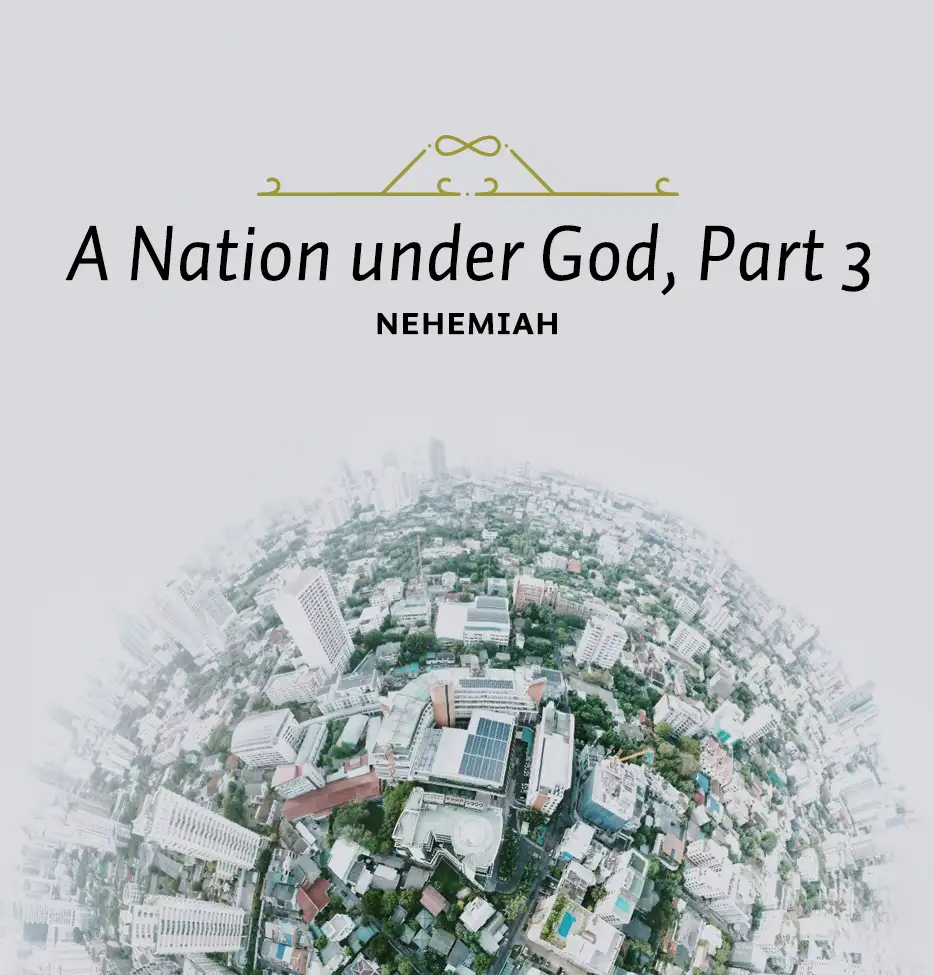Things changed in Jerusalem under the governorship of Nehemiah and the pastoring of Ezra, and they did so radically. I have been calling it a revival, because that is what it was. Revival means coming to spiritual life again. The people had been spiritually dead. Now they revived, and the changes that came transformed their nation and culture permanently. Some of these changes lasted more than four hundred years up to and even beyond the time of Jesus Christ.
What were the steps of this revival? We have already seen two of them. The third stage is a formal commitment to change, expressed in a covenant. The text refers to it as “a binding agreement” (Neh. 9:38) to which the leaders, Levites and priests formally affixed their seals, the equivalent of a signature.
Four different categories of people signed the document.
At the head of the list of signatories are Nehemiah and Zedekiah (v. 1). In the New International Version, Zedekiah seems to belong to the list of priests in verses 2-8. But in the Hebrew, Nehemiah and Zedekiah are joined by the conjunction “and,” which seems to set the two of them apart as a special group representing the civil power. Probably Zedekiah was Nehemiah’s chief secretary.
The second category of signatories contains the names of Israel’s priests (vv. 2-8). There are twenty-one names in this list, the majority of which (at least fifteen) are family names. We can tell this by comparing these verses with chapter 12, verses 12-21, where the names of the priestly families are given explicitly. Ezra belonged to the family of Seraiah (cf. Ezra 7:1), the name that heads the list, which most scholars feel explains why Ezra’s name does not appear separately.
The third category contains seventeen names of Levites (vv. 9-13). Some of these are family names, but most are individuals, a number of whom appear in the list of Levites who explained and applied the law on the day it was first read, according to Nehemiah 8:7.
The final category contains the names of forty-one of the noble families of Israel (vv. 14-27). Many of these names correspond to the names of the families which are said to have returned with the first group of exiles, according to Ezra 2 and Nehemiah 7. Some of the names also appear among the list of wall builders in Nehemiah 3. These signers of the covenant were meant to represent the entire people, as the concluding postscript to the list of names clearly indicates: “The rest of the people—priests, Levites, gatekeepers, singers, temple servants and all who separated themselves from the neighboring peoples for the sake of the Law of God, together with their wives and all their sons and daughters who were able to understand—all these now join their brothers the nobles, and bind themselves with a curse and an oath to follow the Law of God given through Moses the servant of God and to obey carefully all the commands, regulations and decrees of the LORD our God” (vv. 28-29).
It is hard to imagine a more formal agreement on the part of the people, or a more intense commitment to forward spiritual change.






